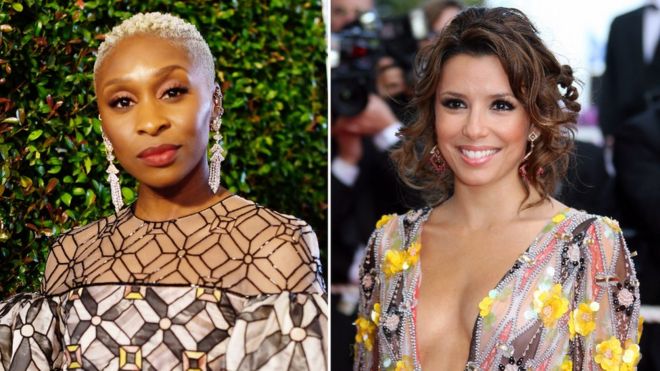Films hoping to compete for the best picture Oscar will have to meet certain criteria over diversity, the Academy of Motion Picture Arts and Sciences says.
The Academy set out four "standards" which it hopes will boost representation and inclusion both in front of and behind the camera.
For the 96th Oscars, in 2025, only films that have met at least two of the standards will qualify for the award.
The Oscars have been criticised for their lack of diversity.
The failure to nominate black or minority actors in 2016 led to a furious backlash, with film stars boycotting the ceremony and the growth of the #OscarsSoWhite movement.
It led to a promise from the Academy to double its female and Bame members by 2020.
The Academy recently invited 819 new members to vote for this year's Oscars, of whom 45% are women and 36% are non-white, and says it has now doubled the number of women members and tripled the number of people from under-represented ethnic and racial communities.
'Catalyst for long-lasting, essential change'
In its latest announcement, the Academy said it was introducing eligibility requirements for the best picture award "to encourage equitable representation on and off screen in order to better reflect the diversity of the movie-going audience".
It lists in detail the underrepresented groups - which include women, racial and ethnic groups, LGBTQ+ and people with disabilities.
It lays out the following areas where such groups need to be involved:
- On-screen acting and storylines, "including at least one of the lead actors or significant supporting actors is from an underrepresented racial or ethnic group"
- Creative leadership positions, departmental heads and crew composition
- Paid apprenticeships, internships and training
- Audience development, from publicity and marketing to distribution
These detailed requirements will only apply to films made in 2024 for the awards ceremony in 2025, and beyond. Until then, films from 2021 will be required to submit an Academy Inclusion Standards form.
"The aperture must widen to reflect our diverse global population in both the creation of motion pictures and in the audiences who connect with them," Academy President David Rubin and CEO Dawn Hudson said in a joint statement.
"The Academy is committed to playing a vital role in helping make this a reality. We believe these inclusion standards will be a catalyst for long-lasting, essential change in our industry."
Latest Stories
-
MEST Africa, Mastercard Foundation celebrate EdTech Innovations at Demo Day in Accra
2 mins -
AWA reaffirms commitment with FOD Walk during Safety Week
6 mins -
Kuami Eugene hopeful he’ll be first Lynx artiste to survive after leaving the label
17 mins -
Akufo-Addo seeks to use Bawumia to complete Akyem agenda – Asiedu Nketia alleges
19 mins -
National Cathedral: CHRAJ recommends investigation, contract cancellation, possible prosecution
23 mins -
Dr James Orleans-Lindsay wins Man of the Year at 9th EMY Africa Awards
25 mins -
Medical Council to enforce specialist distribution nationwide
55 mins -
Fire guts old Fadama market, man reportedly loses GHC800,000
59 mins -
Nacee bemoans low performance fees for gospel artistes
1 hour -
We don’t operate investment platform – GNPC
1 hour -
Ghana Fact-checking Coalition condemns disinformation on voting by Wontumi FM broadcaster
1 hour -
IFRS 17 will augment and accelerate NIC’s efforts to implement risk-based capital – Deloitte
1 hour -
IFRS 17 is one of biggest changes to financial reporting standards in insurance industry – Deloitte
2 hours -
Enimil Ashon: Whose polls do you believe: ‘Global Info or Prof Sarpong?
2 hours -
Ghana Climate Innovation Centre welcomes 25 businesses into Cohort 10
2 hours

